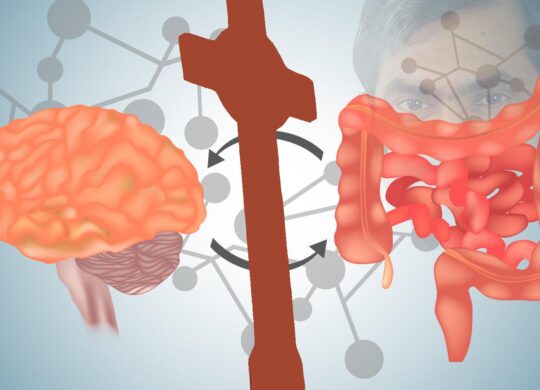Bowels!

The gut is the unsung hero of our bodies. It regulates digestion, but that’s not all it does, apparently. Your mental health and personality, it appears, can be affected by your gut. Because, we are not alone. That is to say, there are a lot of living beings within us, in our guts.
[I know you’re probably thinking I’m going to talk about the indwelling of God the Spirit, but, nope, I’m not.]
I’m talking about the trillions (yes, 1,000,000,000,000s) of little beasts in our guts. All kinds of microbes. Doing all kinds of things in there. The “gut microbiome.” Not to mention, “gut metabolomes,” products of these germs, including amino acids, enzymes, and a host of other factor.
And now scientists are investigating if those 1,000,000,000,000s of critters and their output are affecting our personalities. They think so. They, meaning, a bunch of scientists from Clarkson University, NY, University of Tennessee, and Louisiana State University. They make their pronouncements in “Trait Energy and Fatigue May Be Connected to Gut Bacteria among Young Physically Active Adults: An Exploratory Study,” published recently in Nutrients.
Turns out there is a connection between personality and the gut occupiers’ profile. Distinct microbiomes and metabolomes are associated with particular personality traits.
Great! I not only have to worry about my sinful flesh and its predilection to sin, but now I’ve got to take into consideration germs in me. Of course, I can’t just get rid of them, since many germs in the gut do helpful things to keep law and order in the alimentary tract.
Explain the authors:
Most of the bacteria are located in the large bowel, where they ferment nondigestible food, making available nutrients and other substrates …. These processes, among others, performed by the gut microbiota are essential for maintaining homeostasis and normal gut physiology.”
Several diseases have been linked to imbalances and problems with the gut microbiome, such as obesity, coronary heart disease, diabetes, and inflammatory bowel disease. Add to this list impairments of mental health and cognition. Thus there is a “gut-brain axis”—a bidirectional linkage between bowels and brain! (Or bowels and behavior!)
Ali Boolani, an associate professor at Clarkson University in New York, one of the study’s authors:
Since we are still learning about the gut microbiome, we don’t know whether … if we try to change our gut microbiome, we might also change our personality trait. Additionally, these findings may help explain some of the interpersonal differences that we see in response to the anti-fatiguing effects of nutritional interventions.”
No wonder the ancients associated the bowels with emotion and other qualities (much like we moderns do with the “heart”).
My heart is like wax;
It is melted in the midst of my bowels.
Psalm 22:14
“I delight to do Your will, O my God;
Your Law is within my bowels.”
Psalm 40:8
“My bowels, my bowels! I am in anguish! …
Because you have heard, O my soul,
The sound of the trumpet, The alarm of war.”
Jeremiah 4:19
Even in the New Testament, “to have compassion” often translates the Greek splanchnizomai, from splanchna = bowels. Indeed, the splanchnic artery is an important source of blood for abdominal organs.
And Jesus called His disciples to Him, and said,
“I feel compassion for the people ….”
Matthew 15:32
As also did the father of the Prodigal Son:
“His father saw him and felt compassion,
and ran and embraced him and kissed him.”
Luke 15:20
And the Good Samaritan:
“A Samaritan … felt compassion ….”
Luke 10:33
So …
“Go and do the same.”
Luke 10:37
Be moved in the bowels!
SOURCE:
Gut News; Nutrients











 Abe Kuruvilla is the Carl E. Bates Professor of Christian Preaching at The Southern Baptist Theological Seminary (Louisville, KY), and a dermatologist in private practice. His passion is to explore, explain, and exemplify preaching.
Abe Kuruvilla is the Carl E. Bates Professor of Christian Preaching at The Southern Baptist Theological Seminary (Louisville, KY), and a dermatologist in private practice. His passion is to explore, explain, and exemplify preaching.